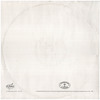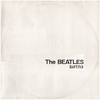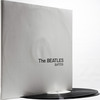Label: Antrop Records (Russia), П91 0009
Style: Classic Rock
Country: Liverpool, England
Time: 46:00, 46:54
Format: Flac Tracks 16/44,1 kHz
Size: 294, 287 Mb
Review: The Beatles’ ‘White Album’. Our take on the 1968 double album from the Fab Four. (Rolling Stone magazine. DECEMBER 21, 1968 4:33PM ET. By JANN S. WENNER)
“Back in the USSR,” this album’s first track, is, of course, a perfect example of all this: it is not just an imitation (only in parts) of the Beach Boys, but an imitation of the Beach Boys imitating Chuck Berry. This is hardly an original concept or thing to do: just in the past few months we have been deluged with talk of “going back to rock and roll,” so much that the idea (first expressed in the pages of Rolling Stone) is now a tiresome one. because it is, like all other superficial changes in rock and roll styles, one that soon becomes faddish, over-used and tired-out.
In the past few months we have seen the Turtles doing The Battle of the Bands and Frank Zappa and the Mothers with their Ruben and the Jets. The Turtles were unable to bring it of (they had to ability to parody, but not the talent to do something new with the old style) and the Mothers were able to operate within a strictly circumscribed area with their usual heavy-handed satirization, a self-limiting process.
It is all open to the Beatles. It would be too simple to say that “Back In the USSR” is a parody, because it operates on more levels than that: it is fine contemporary rock and roll and a fine performance thereof; it is also a superb commentary on the United States S. R., hitting every insight —– “honey, disconnect the phone.” As well as a parody, it’s also a Beatles song.
The song is undoubtedly the result of Paul McCartney’s three trips to the United States in 1968 before the album was made (not including a four day visit to New York this past November after the album was done). It is the perfect introductory song for this set. What follows is a trip through the music of the US (SR).
From here on, much of the material is from India, songs’ the Beatles came back with after their sojourn at the Maharishi’s table. “Dear Prudence” is about a girl the Beatles met while meditating in India. The Beatles were always trying to get her to come out of her room to play, and this is about her.
“Looking through a Glass Onion” is, of course, the Beatles on the subject of the Beatles. Whatever they may feel about people who write about their songs and read things into them, it has undoubtedly affected them, eating away at their foundations and always forcing that introspection and that second thought. And so here is a song for all those trying to figure it out –— don’t worry, John’s telling you right here, while he is rolling another joint.
Part of the phenomenal talent of the Beatles is their ability to compose music that by itself carries the same message and mood as the lyrics. The lyrics and the music not only say the same thing, but are also perfectly complementary. This comes also with the realization that rock and roll is music, not literature, and that the music is the most important aspect of it.
“Obladi Oblada,” where they take one of the familiar calypso melodies and beats, is a perfect example. And it’s not just a calypso, but a rock and roll calypso with electric bass and drums. Fun music for a fun song about fun. Who needs answers? Not Molly or Desmond Jones, they’re married with a diamond ring and kids and a little “Obladi Oblada.” All you need is Obladi Oblada.
“Wild Honey Pie” makes a nice tribute to psychedelic music and allied forms.
“Bungalow Bill,” the mode of the Saturday afternoon kiddie shows, is a tribute to a cat the Beatles met in Marrakesh, an American tiger hunter (“the All American bullet headed saxon mother’s son”), who was there accompanied by his mother. He was going out hunting, and this song couldn’t put the American in better context, with his cartoon serial morality of killing.
“While My Guitar Gently Weeps” is one of George Harrison’s very best songs. There are a number of interesting things about it: the similarity in mood to “Bluejay Way” recalls California, the simple Baja California beat, the dreamy words of the Los Angeles haze, the organic pace lapping around every room as if in invisible waves.
Harrison’s usual style, in lyrics, has been a slightly self-righteous and preaching approach, which we have here again. One cannot imagine it being a song about a particular person or incident, rather a general set of incidents, a message, like a sermon, impersonally directed to everyone.
And this song speaks at still another level, the very direct one of the title: it is a guitarist’s song about his guitar, how and why and what it is that he plays. The music mimics the linear, continuous line of the lead guitarist. It is interesting to note that the song opens with a piano imitating the sound of an electric guitar playing the heavily Spanish lead line well before the guitar picks up the lead. I am willing to bet something substantial that the lead guitarist on this cut is Eric Clapton, yet another involution of the circular logic on which this song so superbly constructed as a musical piece.
The title, “Happiness Is A Warm Gun,” comes from an advertisement John read in an American rifle magazine. That makes this track the first cousin of “Revolution.” The three parts of it; the break into the wonderful 1954 C-Am-F-G style of rock and roll, with appropriate “Bang Bang, choo, choo.” What can you say about this song except what is obvious?
Part of the success of the Beatles is their ability to make everything they do understandable and acceptable to all listeners. One needn’t have an expert acquaintance to dig what they are doing and what they are saying. The other half of letting rock and roll music be receptive of every other form and style of music, is that rock and roll must be perfectly open and accessible to every listener, fulfilling the requirement of what it is— — a popular art.
Paul demonstrates throughout the album his incredible talent as one of the most prolific and professional songwriters in the world today. It’s embarrassing how good he is, and embarrassing how he can pull off the perfect melody and arrangement in any genre you would care to think of.
Just name it and Paul will do it, like say, for instance, a love song about a dog in the Gilbert and Sullivan style, with a little ragtime, a little baroque thrown in. “Martha, My Dear,” about Paul’s English sheepdog of the same name, with hairy puns (“when you find yourself in the thick of it”) and all. And of course, it works on the level of the send-up and also as an inherently good song, standing fully on its own merits.
“Blackbird” is one of those beautiful Paul McCartney songs in which the yin-yang of love is so perfectly fitted: the joy and sorrow, always that ironic taste of sadness and melancholy in the lyric and in the minor notes and chords of the melody (remember —– “Yesterday,” “Eleanor Rigby,” “Good Day Sunshine,” prominently among many.) The irony makes it so much more powerful.
Not only irony: these songs and “Blackbird” share other qualities - the simplicity and sparseness of instrumentation (even with strings) make them penetrate swiftly and universally. This one is done solely with an acoustic guitar. And of course there is the lyric: “Take these sunken eyes and learn to see; All your life you were only waiting for this moment to be free.”
“Rocky Raccoon” is another one of those McCartney offhand tour-de-force’s. Perhaps the Mound City Blues Blowers, circa 1937? Paul is so incredibly versatile not only as a writer, but also as a singer and a musician. Dig the vocal scatting, the saloon-hall piano; then the perfect phrasing, enunciation, the slurring (as in the phrase “I’m gonna get that boy…”). The song is so funny and yet dig the lyrics: “To shoot off the legs of his rival.” Not just to kill, mind you, but to maim. And so why does this song come off so funny? Death is funny.
“I Will” is simply another romantic ballad from Paul’s pen. He uses every available musical device and cliche available —– melodies, instrumentations, arrangements, harmonies, everything –— and he does something entirely original, entirely enjoyable, entirely professional. ...
02. A2 Dear Prudence (03:52)
03. A3 Glass Onion (02:17)
04. A4 Ob-La-Di, Ob-La-Da (03:07)
05. A5 Wild Honey Pie (00:53)
06. A6 The Continuing Story Of Bungalow Bill (03:12)
07. A7 While My Guitar Gently Weeps (04:41)
08. A8 Happiness Is A Warm Gun (02:43)
09. B1 Martha My Dear (02:27)
10. B2 I'm So Tired (02:03)
11. B3 Blackbird (02:17)
12. B4 Piggies (02:03)
13. B5 Rocky Raccoon (03:31)
14. B6 Don't Pass Me By (03:48)
15. B7 Why Don't We Do It In The Road (01:40)
16. B8 I Will (01:45)
17. B9 Julia (02:53)
01. C1 Birthday (02:41)
02. C2 Yer Blues (03:58)
03. C3 Mother Nature's Son (02:47)
04. C4 Everybody's Got Something To Hide Except Me And My Monkey (02:23)
05. C5 Sexy Sadie (03:12)
06. C6 Helter Skelter (04:29)
07. C7 Long, Long, Long (03:02)
08. D1 Revolution 1 (04:14)
09. D2 Honey Pie (02:40)
10. D3 Savoy Truffle (02:53)
11. D4 Cry Baby Cry (03:05)
12. D5 Revolution 9 (08:13)
13. D6 Good Night (03:10)




KatFile Mega4up UploadRar TurboBit YandexDisk
LP2
KatFile Mega4up UploadRar TurboBit YandexDisk

Thanks 👍👏👏👏👏🎶🎶🎶
ReplyDelete